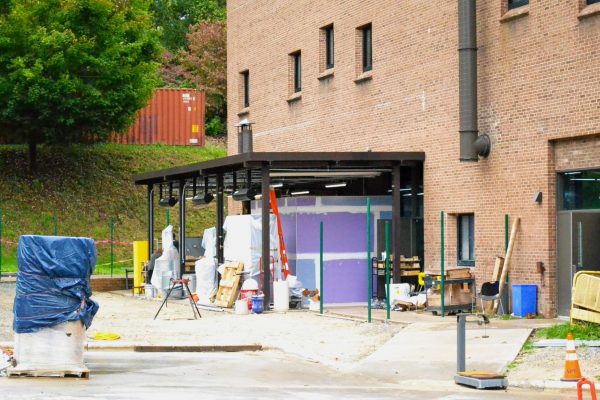Opinion: Changing Campus Facility Names is Justified
July 18, 2020
In the wake of events that have massively affected the country, a wave is passing through North Carolina. That wave, while certainly divisive to some, is good for the state as a whole. A wave that has covered everything. Particularly its collegiate system.
The country is in a state of flux. The death of George Floyd on May 25th has made Americans deeply consider its preconceived notions created by the darker parts of it’s past. Racist and prejudiced institutions are being thrown down and reexamined. You can see it everywhere in the news: from confederate statues being torn down to organizations like NASCAR banning the confederate flag at its events, visible changes.
One of the biggest disruptions that shook through our own campus is renaming of several facilities. Both Lovill and Hoey Halls will be renamed. The change comes after protests that the two men these buildings honor are not representative of the values of the university, and frankly, that’s an understatement.
Edward Lovill served in the Confederacy during the Civil War and favored the Democratic party’s views at the time of the subjugation and suppression of African Americans during reconstruction.
Clyde Hoey was a Southern Democrat, a North Carolinian politician that fully supported segregation and was a rampant white supremacist. He was also aggressively against homosexuals and supported their suppression.
Neither of these men match the modern values and beliefs of Appalachian State, they were undeniably racist and prejudiced in the times that they were alive.
This is where the complicated question comes from, according to some people. Do we judge these men based on modern standards?
For me, however, this is a non issue and almost beside the point of the real conversation. The point of getting rid of these names, is to show that our current campus does not prop up or honor individuals that practice those beliefs, whether or not those beliefs were typical of men in North Carolina at the time they lived. It also crucially shows that the current administration of App State respects the current issues and does not sit passively but acts on the changes that need to be made, that tradition and the past does not bind them.













Travis • Jul 19, 2020 at 5:35 pm
Is it 1984 yet?